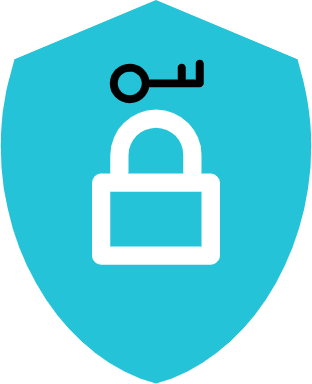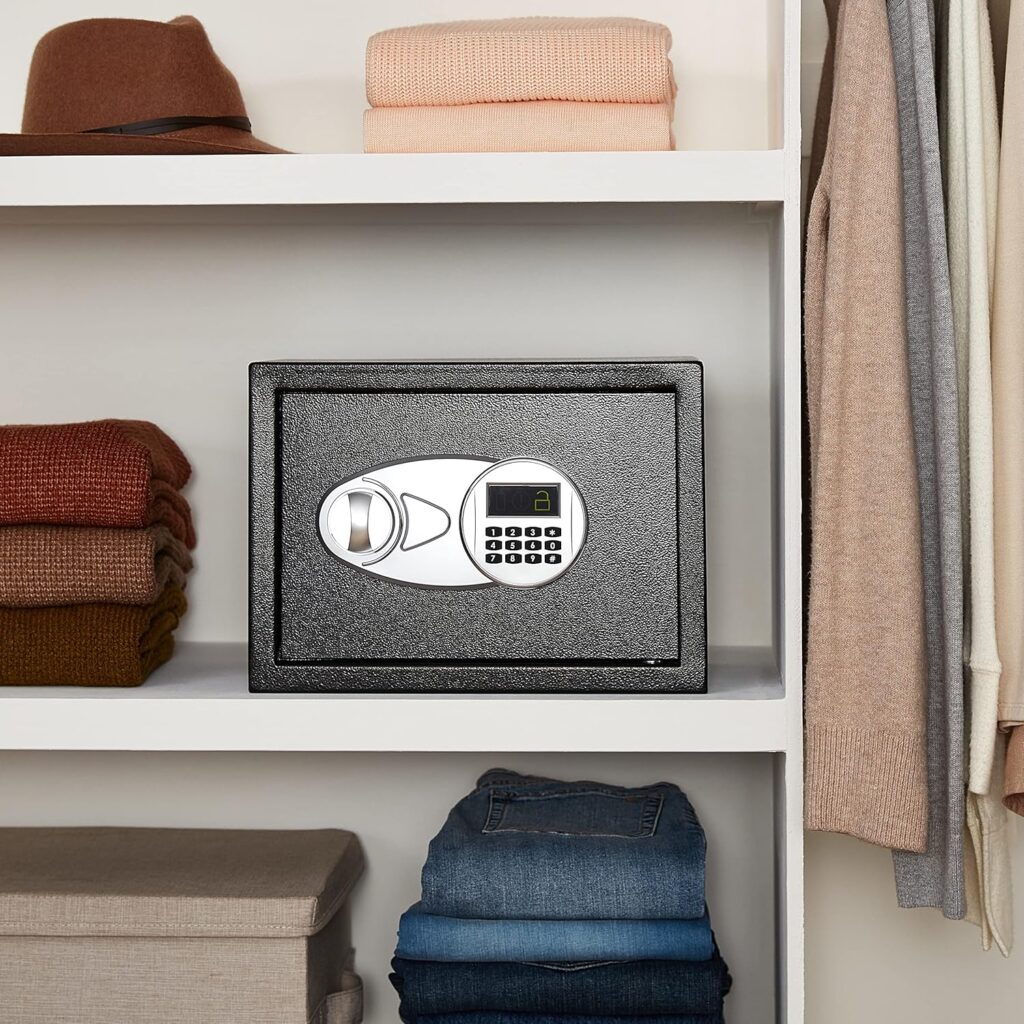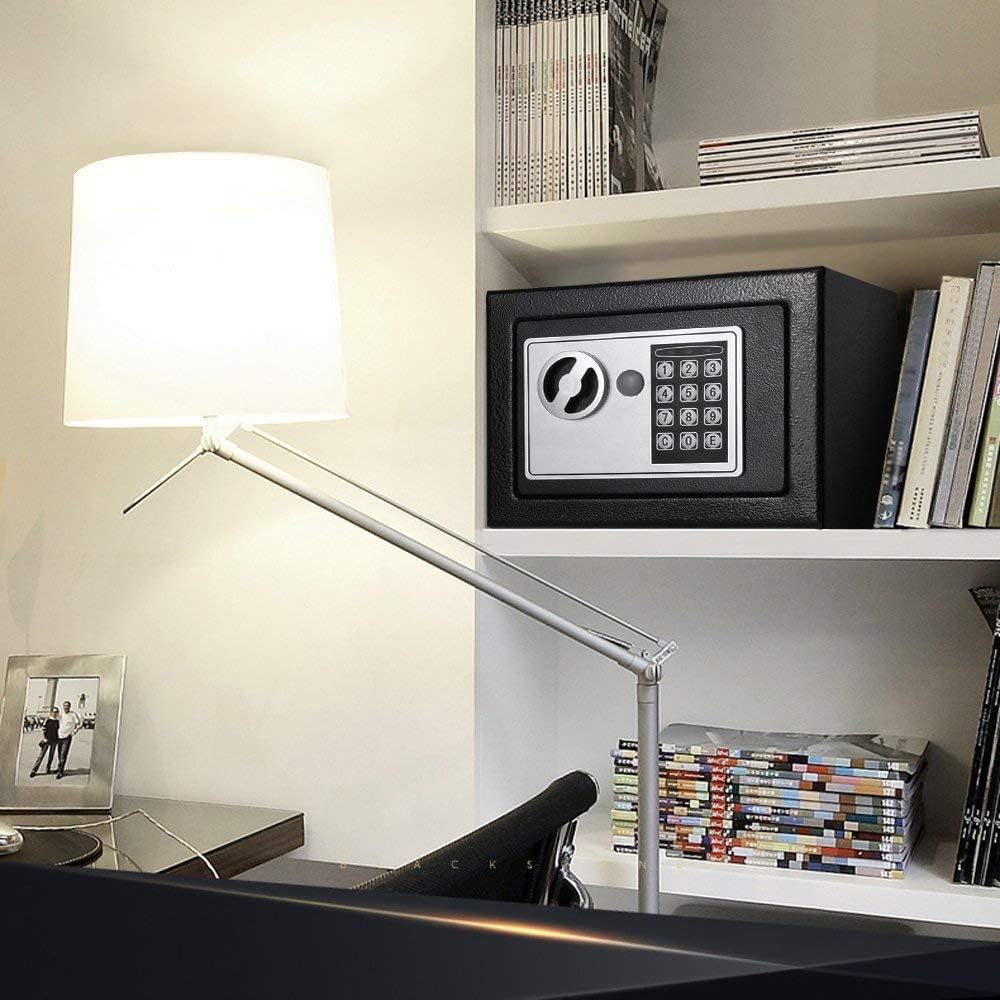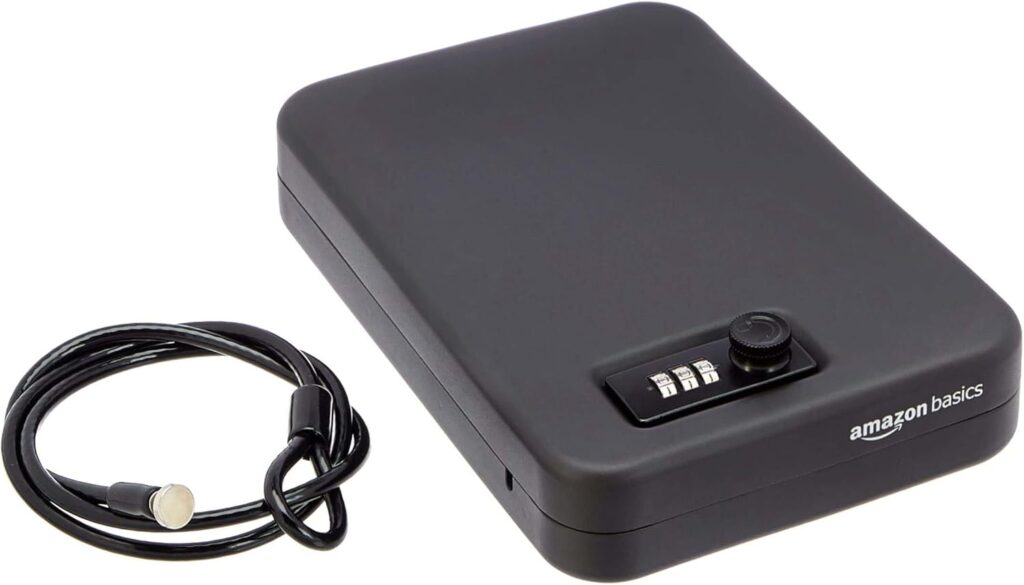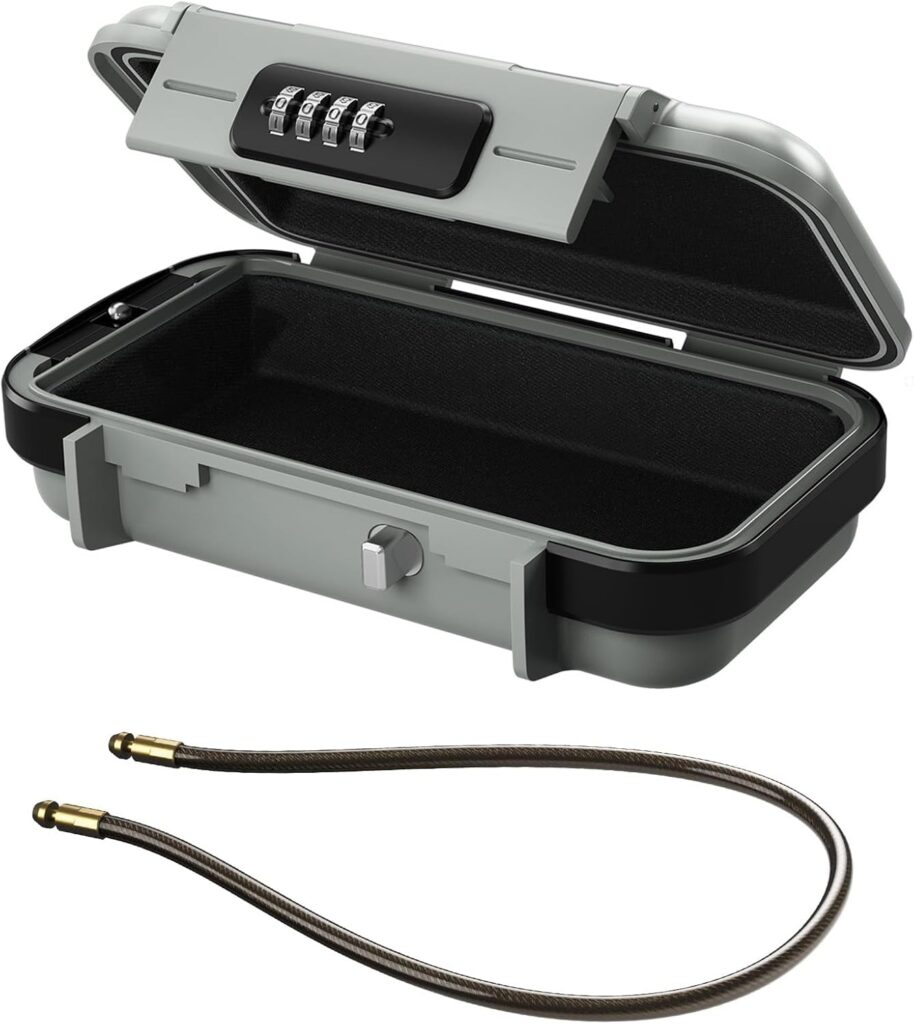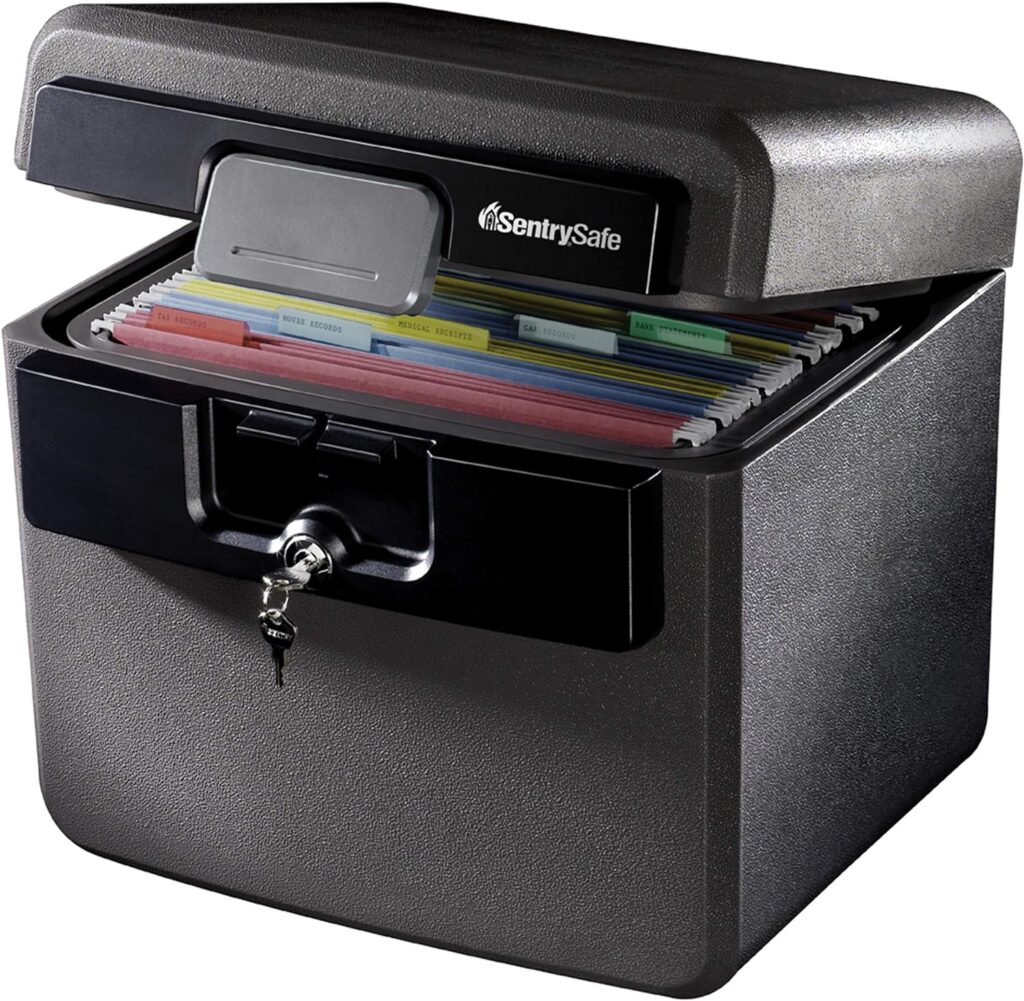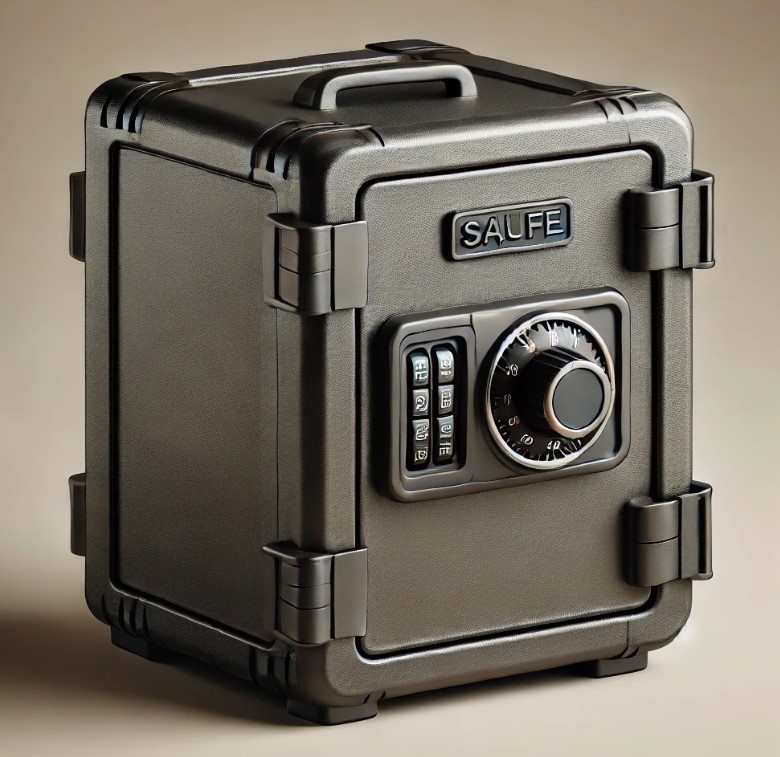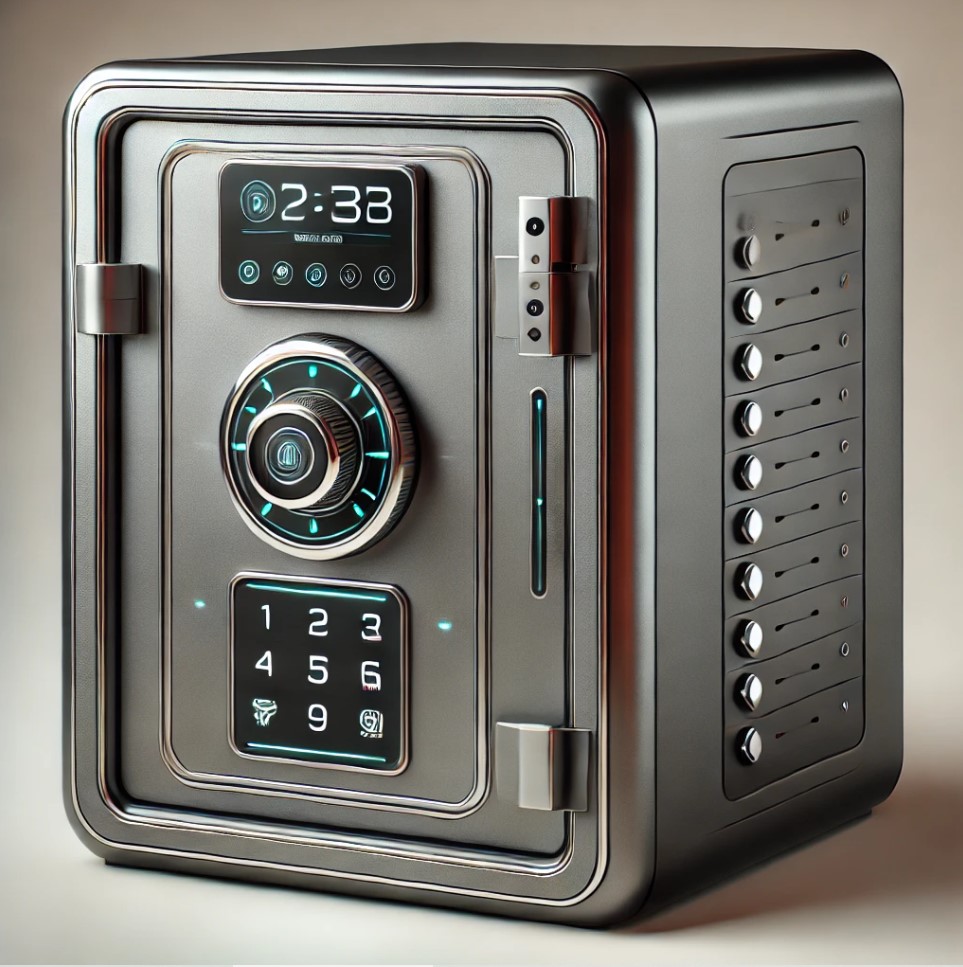It is important to keep your money and valuables safe and protected. In an increasingly unpredictable world, safeguarding personal items, money, and valuables is essential for everyone, especially for individuals without a trusted support system around. Now, of course, I don’t know everyone’s situation, but some of us live with people that we don’t trust 100%, some of us have valuables that we rather not want people to know we have, and for the rest of us, we just want our privacy, that’s all. Personal safes provide a crucial means of protection, offering peace of mind and security for those who need to store important belongings. That is why exploring the importance of having a safe or a locked container could be very valuable information for people learning how to keep their things unseen and protected when they are away doing whatever and returning, knowing that it is still there and protected at all times. The need for secure storage solutions has never been more pressing. Whether you’re looking to safeguard their valuables, a person living with people you simply can’t trust, or you’re a traveler seeking peace of mind, a wide array of individuals would find significant value in investing in safes or locked containers. This article delves into the various types of reason a safe who would improve your security solutions. Safe and/or lock containers are beneficial pieces of equipment that could benefit you exclusively. Many people think if you have a safe in your home, you’re overthinking and overprotective. But there’s nothing wrong with being protective of your things and your property!
Safes offer privacy and confidentiality in secure places for personal or sensitive items, such as journals, medical records, money, and legal documents. This is especially beneficial for those who value their valuables or who have a home office with confidential work materials. Maybe you’re sharing a dorm with someone or you’re sharing a room with somebody, and you know every once in a while you’re going to want to lock out to make sure it stays where it’s supposed to be. Safes are essential security tools designed to protect valuables, personal documents, and sentimental items from theft. But not only human interfere but natural disasters like fire, and water damage. In today’s world, where people often need secure storage for both physical and digital valuables, safes offer an accessible solution that’s more advanced than ever. Whatever you are safeguarding the benefits of a safe extend to nearly every person in need of protection. Parents often choose safes to keep prescription medications, firearms, and other dangerous items out of reach of children. Safes are designed for childproofing and come with additional lock mechanisms and extra safety certifications for older children who are smarter than yesterday’s generation. A safe provides reliable security for valuables when you’re away for extended periods, such as during vacations or work trips. By securing important items, homeowners can reduce worry about home break-ins. Safes are definitely an essential part of security within your home which makes them perfect for people who desires an extra layer of protection. There’s nothing wrong what’s owning a safe in today’s era.

Important Features of Common Safes
Locking Mechanisms
Safes offers multiple locking options: combination locks, and digital keypads. But today’s safe could be biometrics (fingerprint recognition), and keyed lock. The rise of technology has led to the creation of smart safes that integrate digital security features. These safes can be accessed via smartphone apps, biometric recognition, or remote access, allowing users to manage their security from anywhere. Smart safes are ideal for tech-savvy individuals looking for innovative solutions to protect their valuables. Higher-end safes may combine two or more locking systems for extra security, while more basic models stick with a single, reliable lock.
Fireproof and Waterproof Ratings:
These are critical for anyone looking to protect documents or valuables from fire or flood damage. Many safes are rated for various durations and temperatures, with UL ratings indicating their fire resistance level, typically ranging from 30 minutes to 2 hours. Unexpected disasters can happen to anyone. Fire, floods, and other catastrophic events can lead to the loss of irreplaceable items. A locked container can effectively minimize this risk, ensuring that crucial possessions are safeguarded.
Tamper Detection and Alarms:
Advanced safes often have built-in alarms or tamper alerts that activate if an incorrect code is entered multiple times. This feature is particularly helpful for protecting valuables from unauthorized access attempts. Now in today’s era there apps that connects you to your safe. Imagine getting an alert on your phone to tell you if someone has tampered with your safe while you’re away at work. Imagine remotely opening your safe through the power of your phone. You no longer need to imagine because it is real!
Many apps allow users to set up their phone as an alternative to a physical key. This feature is often combined with a passcode or biometric entry on the phone for added security. Master Lock offers Bluetooth-enabled safes that pair with a smartphone app. This app lets users lock, unlock, and manage access logs. For added flexibility, the owner can share access codes with trusted people through the power of an app.
Interior Customization:
Many safes come with adjustable shelving, interior compartments, and drawers for better organization of valuables. There many types of safe for items of all purposes. Gun safes are designed specifically for firearm security and typically meet state or federal regulations. They often include features like reinforced steel and multiple lock options for added safety. Jewelry safes are equipped with compartments and velvet linings for jewelry storage. They often include features like watch winders or specific compartments for rings, and necklaces. Document safes are normally fireproof and/or waterproof and meant for storing important paperwork. They come in various sizes, from compact options for small stacks of documents to larger models. Depository safes are commonly used in businesses, depository safes come with a slot for cash deposits without requiring access to the main compartment. This is ideal for retail businesses or offices handling regular cash deposits.
Portability Options:
For those who travel or need a more mobile option, portable safes are available. Portable safes are my favorite and I own multiple. Essentially these are for people who travel frequently and need a safe option on the go. Portable safes are normally small, lightweight, and can fit easily in your suitcase. These containers can be easily transported and often locked using a combination to secure the contents. And even if you’re not traveling a lot, you’re easy to hide and place in small places. You’re durable and barely break. Although they’re smaller and lighter, they still provide reliable protection, with added portability features like handles or even straps for easy transport.
Why a Safe is a Wise Investment
Owning a safe is an investment in peace of mind and security. Whether protecting valuables from theft, natural disasters, or accidental loss, safes offer protection and convenience in organizing your valuables. By storing valuables in a single, secure location, safes help reduce the risk of misplacing items or spreading them around the house. This is especially helpful for documents and personal items that need to be easily accessible but secure. With options catering to different security needs, from fireproof to childproof features, safes are adaptable to the individual needs of every household or business. Ultimately, a safe provides long-term benefits, making it a valuable addition to modern life.
